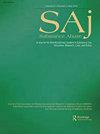Commentary Article: Strategic Planning for Addiction Programs within Academic Medical Centers: Examples from the Yale Program in Addiction Medicine
IF 2.4
3区 医学
Q2 SUBSTANCE ABUSE
引用次数: 0
Abstract
Background Addiction programs at academic medical centers must navigate complex, multidisciplinary environments as they work to advance the field and improve substance use treatment access and outcomes. Programs can employ strategic planning processes to identify goals and strategies for success. Methods: The Yale Program in Addiction Medicine began a series of strategic planning activities in February 2020 with the primary aims of (1) conducting a point-in-time needs assessment for the Program and (2) identifying goals for Program improvement and expansion. Drawing upon a Strengths, Weaknesses, Opportunities, and Threats (SWOT) analysis framework and the Delphi method for group decision-making, these strategic planning activities were implemented in four steps involving multimodal engagement and iterative feedback amongst Program faculty and selected stakeholders. Results: Primary deliverables included four overarching programmatic goals, associated action items, strategies for success, a proposed implementation timeline, and a revised Mission, Vision, and Values statement for the Program. Conclusion: Methodologic considerations and environmental factors offer insight into the strengths, limitations, and adaptive potential of this approach as well as others described in the literature. Key outputs highlight the benefits and timeliness of strategic planning for addiction programs, as heightened interest and investment in substance use treatment, prevention, and harm reduction paves the way for opportunity and innovation.评论文章:学术医疗中心内成瘾项目的战略规划:来自耶鲁成瘾医学项目的例子
学术医疗中心的成瘾项目必须在复杂的多学科环境中导航,因为他们努力推进该领域,改善药物使用治疗的途径和结果。程序可以采用战略规划过程来确定成功的目标和策略。方法:耶鲁大学成瘾医学项目于2020年2月开始了一系列战略规划活动,其主要目的是:(1)对项目进行及时的需求评估;(2)确定项目改进和扩展的目标。利用优势、劣势、机会和威胁(SWOT)分析框架和德尔菲方法进行群体决策,这些战略规划活动分四个步骤实施,涉及项目教师和选定的利益相关者之间的多模式参与和迭代反馈。结果:主要可交付成果包括四个总体规划目标、相关行动项目、成功战略、拟议的实施时间表,以及修订后的项目使命、愿景和价值观声明。结论:方法学上的考虑和环境因素提供了对这种方法以及文献中描述的其他方法的优势、局限性和适应潜力的见解。主要产出突出了成瘾方案战略规划的好处和及时性,因为对药物使用治疗、预防和减少危害的兴趣和投资的增加为机会和创新铺平了道路。
本文章由计算机程序翻译,如有差异,请以英文原文为准。
求助全文
约1分钟内获得全文
求助全文
来源期刊

Substance abuse
SUBSTANCE ABUSE-
CiteScore
5.90
自引率
2.90%
发文量
88
审稿时长
>12 weeks
期刊介绍:
Now in its 4th decade of publication, Substance Abuse journal is a peer-reviewed journal that serves as the official publication of Association for Medical Education and Research in Substance Abuse (AMERSA) in association with The International Society of Addiction Medicine (ISAM) and the International Coalition for Addiction Studies in Education (INCASE). Substance Abuse journal offers wide-ranging coverage for healthcare professionals, addiction specialists and others engaged in research, education, clinical care, and service delivery and evaluation. It features articles on a variety of topics, including:
Interdisciplinary addiction research, education, and treatment
Clinical trial, epidemiology, health services, and translation addiction research
Implementation science related to addiction
Innovations and subsequent outcomes in addiction education
Addiction policy and opinion
International addiction topics
Clinical care regarding addictions.
 求助内容:
求助内容: 应助结果提醒方式:
应助结果提醒方式:


